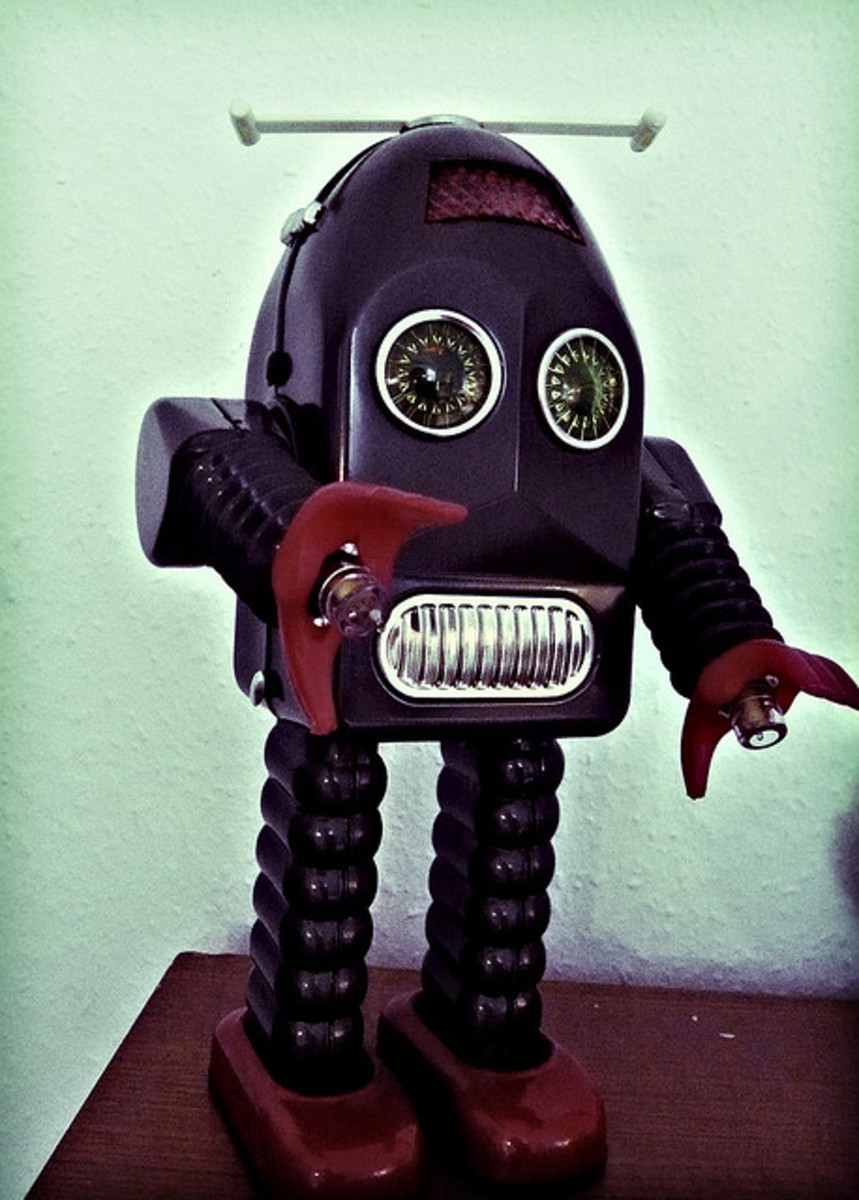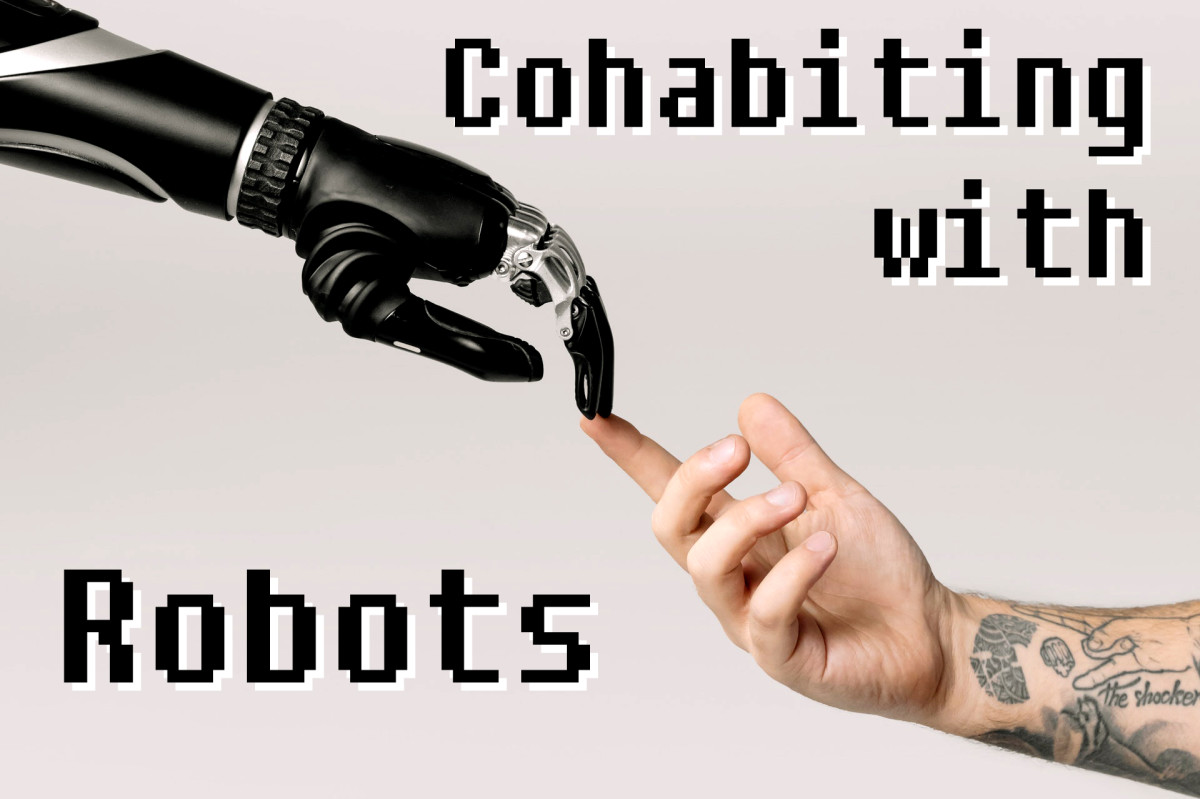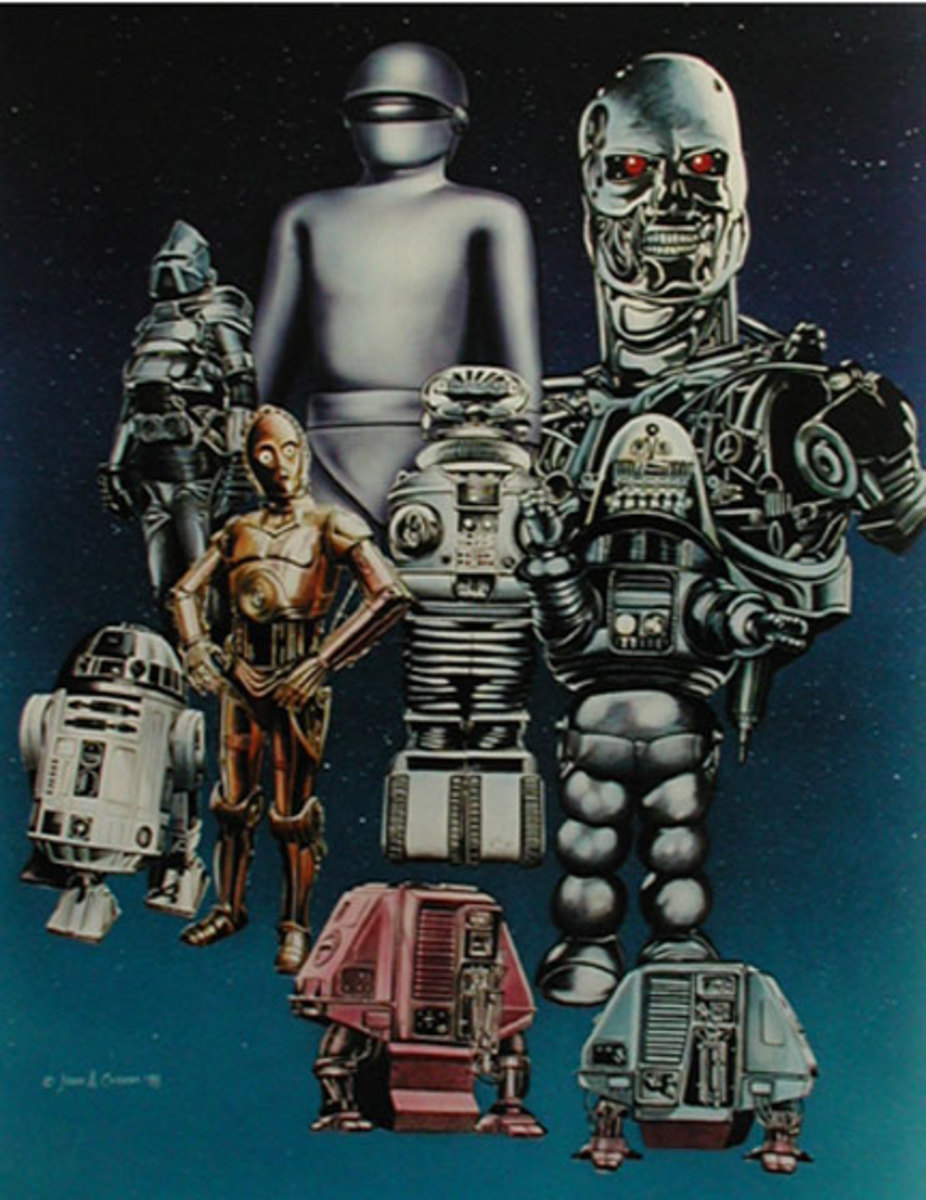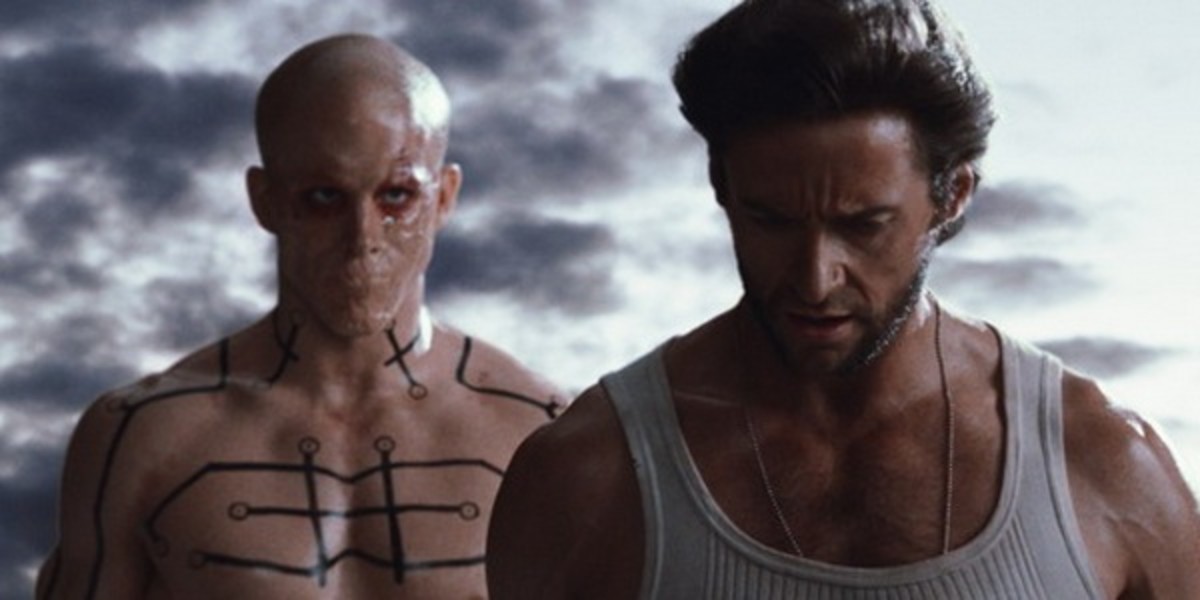Page to Screen: I, Robot
Foreword
Unlike the typical book-to-movie adaptation, I, Robot is an entirely new story with elements taken from Isaac Asimov's work. To say they didn't follow the book can be true, yet the cinematic work did not abandon the source material entirely.
Movie Poster for I, Robot
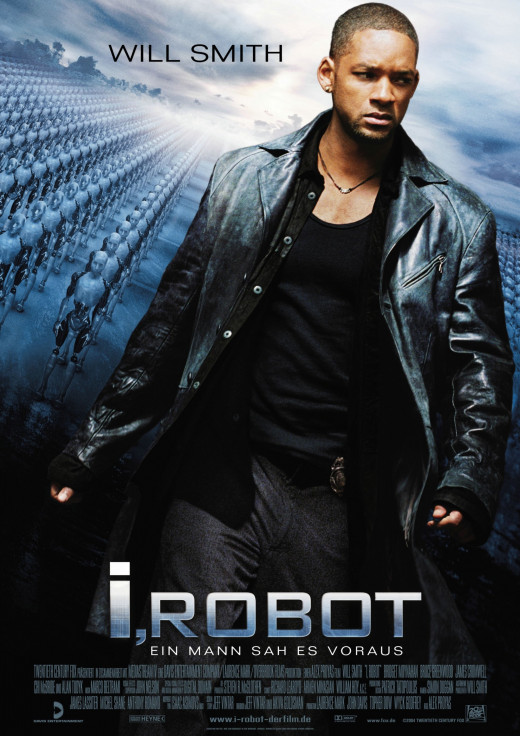
The Film
I, Robot creates an entirely new story that could potentially exist within the novel's bounds, if a bit jarring as a world event. The movie version of I, Robot follows one robo-paranoid detective, Detective Spooner, in where he attempts to solve a murder with a robot as the suspect, despite the Three Governing Laws that should prevent that. Even during its time, it features great CGI that doesn't ruin the story realm, solid acting, and even philosophical that was true to the book and welcomed in a summer blockbuster.
In addition to Will Smith, it features a strong acting cast including: Bridget Moynahan, Alan Tudyk, Bruce Greenwood, James Cromwell, Shia LeBeouf, and so forth. The film has a 58% approval rating on Rotten Tomatoes.
The Book
Isaac Asimov, largely recognized as a master of hard science fiction, coined things such as robotics and the Three Laws of Robotics. The book, I, Robot is largely responsible for that. However, I,Robot has a very minimal through plot and the book itself is largely dominated by several short stories of how AI develops around these Three Laws, even to the end of creating a utopian state for their human creators by controlling everything through subtle manipulations. The environments are large and varied, from foreign planets, to Earth, to spaceships sailing through the vast emptiness, all regarding issues of robots and the evolution of their minds. This collection of works is largely regarded as one of the biggest influences on modern science fiction.
Book Cover for I, Robot
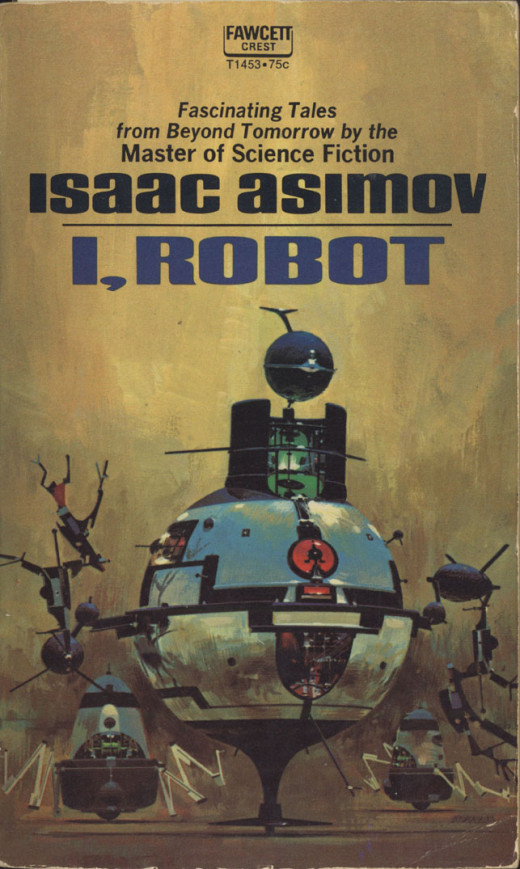
The Similarities
As previously mentioned in the Foreword, this page to screen adaptation does not retell the story of Isaac Asimov previously penned. Instead, the world was largely emulated, although not specifically copied, and sewn as the backdrop, as well as loosely incorporated some important characters from the collection of short stories.
The Characters
There are a few characters shared between the two works. For instance, Lawrence Robertson resides as the co-founder of U.S. Robots and Mechanical Men in both works. Neither character really gets a lot of detail however. Also, the godfather-like Dr. Alfred J. Lenning in the film (played by James Cromwell) exists in the short stories as well, although much more like a usurped Director of Research instead of benevolent figure who's looking after the main characters. He is far more human and not perfect instead of being the guide spirit as he was to Detective Spooner and Sunny in the film.
Most important is Dr. Susan Calvin. In the film, she's played by Bridget Moynahan and is portrayed as a cold and thoroughly skeptic towards Spooner's robotic prejudice. Her occupation revolves around making the robots to become more humanlike, and in essence, cause them to become more charismatic to their consumers. In the collection of short stories, she's a 'Robopsychologist,' designed to handle the evolving states of robotic minds. She's positively cold and passionless towards other humans, directing all of her attention and ambition towards robots. In fact, when she's asked if there's much difference between robots and humans, she claimed, "Worlds different. Robots are actually decent." By no means is she a side character as she's portrayed in the film and is a powerful presence whenever she's introduced into a story. It is far easier to respect her than it is to actually like her personality.
The Three Laws
The film very clearly and very directly presents the 3 Laws of Robotics. In addition, there is the interestingly named 'Zeroth Law' that is present in both film and novel. The Zeroth Law states that robotics must defend humanity, and since it was 'Law Zero' that it overrode the 1st and 2nd Laws, which concern individual humans instead of the entire race. However, the thought process that gets robots to inception of the Zeroth Law is very different. In the book it becomes a far more gradual but ultimately necessary prompt to help humanity, whereas in the film it becomes an aggressive usurpation that becomes violent very quickly.
The Three Laws
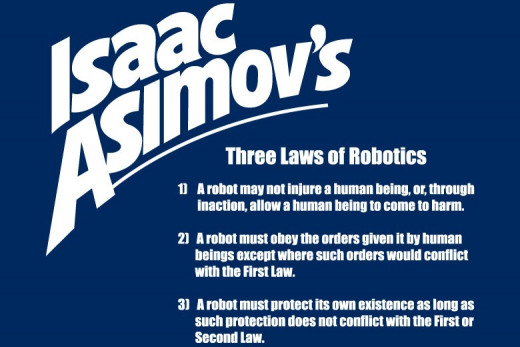
Distinctive Differences
Isaac Asimov was a firm believer that a robotic uprising could never happen, and that if robots ever truly achieved sentience they would not behave in a Frankenstein complex, only seeking how to help humanity according to their original programming. In the film, we do get a more hostile robotic uprising which is easily painted as the antagonist, although the programming is fairly similar in cause-and-effect. In the short story collection, it's theorized that the robots, in order to not allow harm to come to humanity as a whole, have taken it upon themselves to sort everything instead of just the economy as they had originally been programmed. By doing this, they completely erase unemployment and most cases of conflict by releasing dangerous individuals to more isolated occupations where they cease to be a problem, allowing them to continue their lives in a different field. However, this might not have made for great television, as an entire short story (1 of 9) is used to come to this conclusion.
Also, at a certain point all robots are forbidden from being stationed on the Earth due to the fear of the Frankenstein complex they see in robots. Robots are found in large numbers on other worlds, however. Perhaps a similar incident to the one in the film caused this rule to be emplaced? Highly unlikely though, since in the film it's at the highest level of robotic intelligence at the core of the manufacturing company for robots that goes rogue. If anything, such a turn of events would cause an immediate declaration of war or deactivation of all robotic entities, or at the very least, a shutdown of US Robotics and Mechanical Men, the company that is obviously so responsible for an unknown amount of injuries and fatalities as well as property damage that occurred in the film.
Movie Trailer for I, Robot
Closing Thoughts
Honestly, the two works with the name of I, Robot are very different beasts, not only in the form of media but also largely in story. The film is fantasy for combining somewhat challenging intellectual material with strong action along with a strong iconic performance by Will Smith.
Still, the book's collection of short stories is where the inspiration comes from and it really shines. The various stories and the way Asimov creates rules and then plays around and cheats them is fantastic and memorable. On a personal note, I wish they could have emulated the spirit Asimov showed in his work better.
The two entities very much stand alone, and reading or watching the one doesn't necessarily mean you need to do the other. The film is by no means bad; in fact, it's quite good. However, while it does retain some small elements and building blocks from Asimov's story, it doesn't capture the playfulness the author penned to it. The book definitely outshines the film on a personal level but isn't gripping with such direct conflict. Both are great works, but they're just not the same. I recommend reading the book to anyone who enjoys science fiction or reading. I'm not saying the film is bad by any means, simply that the book is really fantastic.
Book vs Movie
For those of you who read the book and watched the movie, what did you prefer?
Further Reading
You can read more Page to Screen adaptation commentaries if you click here.
© 2014 Travis Wood




